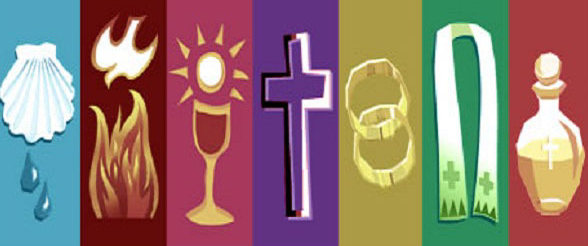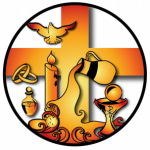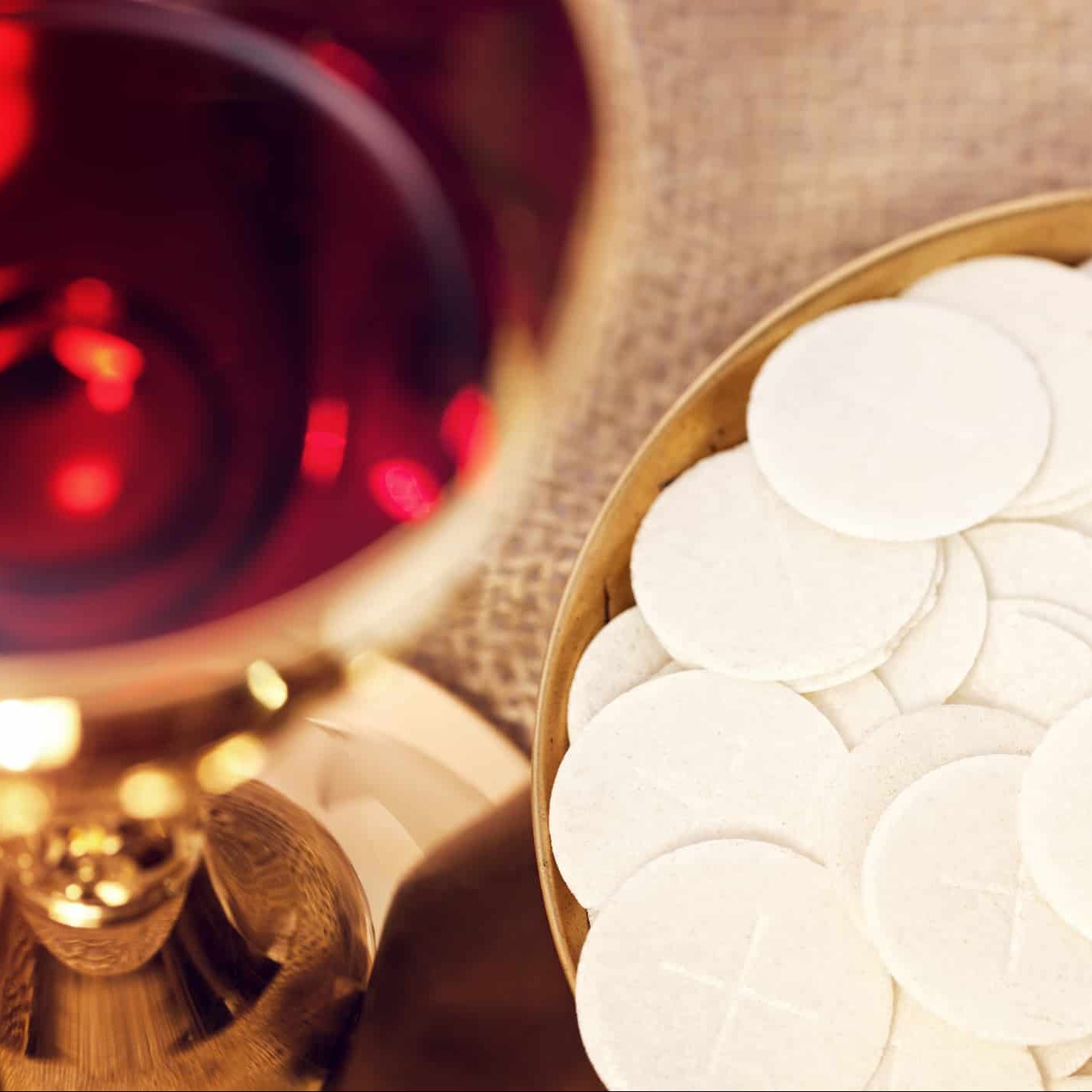“It is critically important that we remember the sacraments are not traditions. They are not little rituals we play out like the make-believe games of childhood. They have the power to bring heaven to earth, rip the veil between all things seen and unseen, and allow humanity and eternity to commingle in mysterious, yet palpable ways. Through the sacraments, heaven comes, not just to visit, but to live with us and in us. In the sacraments, we are graced.”
-Elizabeth Kelly, author of Reasons I Love Being Catholic

A sacrament is a rite that is performed to convey God’s saving grace to the recipient, through the power of the Holy Spirit.

All sacraments have three characteristics:
- Sacraments use outward signs to address our entire being; since we are both physical and spiritual, God chooses to convey his invisible grace through visible signs and symbols.
- Sacraments were established by Jesus Christ during his life on earth. No human power can attach the grace of God to an outward sign – only God.
- Sacraments confer grace, a sharing in the life of God. They do so, not through the power of the human agent, not through the outward signs themselves, but as a direct consequence of their having been established by Jesus Christ for that purpose.
The sacraments were instituted by Jesus during his life and entrusted to His Church. The sacraments do not increase God’s love for us. That is infinite and cannot change. But they provide a way in which we can increase our ability to absorb that love. All the sacraments give us the ability to receive the gift of God’s love or His grace. This gift is, of course, invisible. To help us to understand the invisible gift we are receiving, each sacrament involves physical signs and symbols that we can see, hear, and experience.

